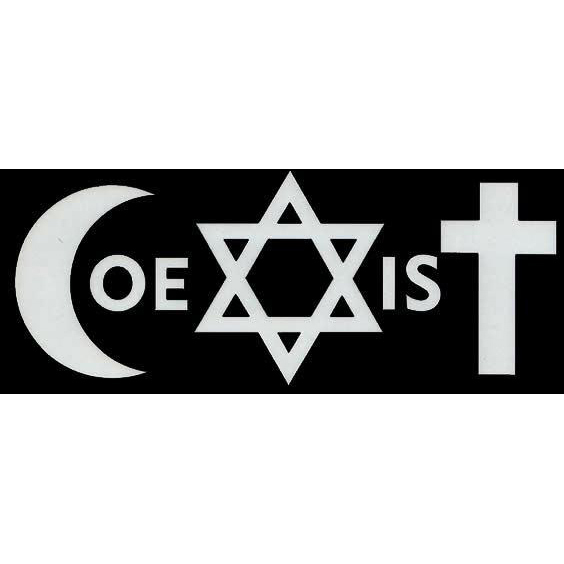Discussions in recent days of so-called religious freedom bills in Indiana, Arkansas, and now North Carolina raise issues – both legal and pastoral – which the NC Council of Churches has been addressing for many years.
The legal context
The first words of the Bill of Rights are the religious liberty clauses: “Congress shall make no law regarding the establishment of religion nor prohibiting the free exercise thereof.” The so-called Free Exercise Clause prohibits government from interfering in the practice of religion.
But constitutional rights are not absolute. So, for example, in the 1870s, the courts ruled that Mormons could believe that they were called to practice polygamy, but federal laws banning polygamy trumped the practice of polygamy even though based on sincerely held beliefs.
Over the years, the US Supreme Court established a standard for Free Exercise cases: Government could “substantially burden” someone’s practice of their faith only if there were a “compelling state interest” in doing so and if the limitation being imposed was the “least restrictive” manner of achieving that interest.
In 1990, the US Supreme Court replaced that standard with a must less restrictive one, i.e., it made it much easier for the state to infringe on people’s free exercise of religion. In response, Congress passed the Religious Freedom Restoration Act (RFRA) which did nothing more than restore the standards of substantial burden, compelling state interest, and least restrictive manner.
The US Supreme Court ruled that Congress couldn’t made the standards applicable to the states, but the Court left open the option of states adopting their own RFRAs. Several did; North Carolina did not.
Where the Council stands
In 1998, the NC Council of Churches adopted a policy statement entitled “Religious Liberty” in which we called for the “passage of a state law, comparable to the Religious Freedom Restoration Act, which would prohibit restrictions on religious freedom unless the state is using the least restrictive way to achieve a compelling state interest.”
Our concern, and that of many groups at that time, was that the change in Free Exercise standards would lead to significant limitations on religious liberty and could especially encourage discrimination against “small and/or unpopular religious groups.” The statement mentioned impacts on practices by, among others, Jehovah’s Witnesses, Native Americans, Orthodox Jews, and Muslims. The full statement contains helpful information on the history of Free Exercise cases, the possible ramifications of the loss of the compelling state interest standard, and recommendations for protecting religious liberty, including the passage of a “pure RFRA-like statute” in North Carolina. It also warned against exceptions in RFRA laws that would discriminate against one category of people, prisoners. Click here to read the full statement.
In recent days, state RFRAs have reappeared, but this time being promoted by people opposed to same-gender marriage and worried about its increasing legal and social acceptance. The concern that has been voiced is for people in the marriage “industry” – caterers, florists, wedding directors, etc. – who might be forced to provide wedding services to couples whose weddings are contrary to their religious beliefs. Such a law has brought widespread attention to the state of Indiana, and similar bills have been introduced in North Carolina.
The Council remains committed to the protection of religious liberty and remains especially concerned that there be protection from discrimination against adherents of small, uninfluential, and/or unpopular denominations and faiths. At the same time, over the decades, we have voiced our opposition to all forms of discrimination, including those based on race, gender, ethnicity, and sexual orientation. Click here to read our 1992 statement on discrimination based on sexual orientation.
As currently written, the North Carolina bills would permit discrimination based on religious beliefs, not just regarding sexual orientation, but also race/ethnicity, religion, and other factors. So, for example, a florist whose religious beliefs were in opposition to inter-racial marriages or inter-faith marriages or second marriages for divorced people would be permitted to use those beliefs to refuse to serve such couples.
While we continue to support the concept of a state law that is equivalent to the federal RFRA, the bills introduced recently in North Carolina differ significantly from the federal law in scope and impact. For example, the NC bills omit the word “substantial” in speaking of the burden imposed, and they refer to a government interest “of the highest magnitude.”
We will oppose any legislation which would permit religious beliefs to be used as a justification for discrimination.
A closing pastoral word
On a pastoral level, we need to acknowledge that there are people of faith who are hurting on this issue. There are conservative people of faith who find deeply held beliefs being challenged, even within their faith traditions, and who feel change in this area has come with great speed. There are people of faith who have spent much of their lives being discriminated against because of their sexual orientation, with at least some of that coming from within their faith traditions, and an end to that discrimination can’t come quickly enough.
As the Council did in 1992, we again encourage people of faith to engage across these divides, “believing that understanding and respect come out of sharing in community and being in dialogue.”


